Overclocking
We've managed 4.25GHz using 1.425V with most boards we've tested so far with our Ryzen 7 2700X, but more recently, putting a sustained load through our eight-core CPU at these settings has seen issues with throttling, namely with Gigabyte's otherwise excellent B450 Aorus Pro. We now take a slightly closer look at things here, noting the VRM temperatures and testing each board with an extended load to see how they cope in more demanding tasks when all eight cores and 16 threads are being used.
Amazingly, despite its seemingly diminutive cooling and power delivery, we saw no throttling issues during stress test, with the VRM heatsink just about topping 50°C and the rear of the VRMs reaching well over 70°C according to our IR thermometer - both fairly toasty, there was still no throttling, whereas the Gigabyte board throttled within five minutes. So, if you want to overclock your eight-core Ryzen CPU and will have multi-threaded workloads to throw at it, the MSI board certainly seems far more capable here than the B450 Aorus Pro. You can see more details on MSI's EFI here and an overview of the new Precision Boost Overdrive controls here.
Performance Analysis
With a very much mid-range audio codec, it wasn't surprising to see the B450M Mortar sit well down the graph in the RightMark Audio Analyzer test results with a dynamic range of 91dBA and noise level of -92dBA, although unless you're an audiophile this is unlikely to be a dealbreaker. The power consumption numbers were a little high; at stock speed the idle draw was 97W, while the Gigabyte board came in at a little over half this amount and was noticeably less power hungry when overclocked too.
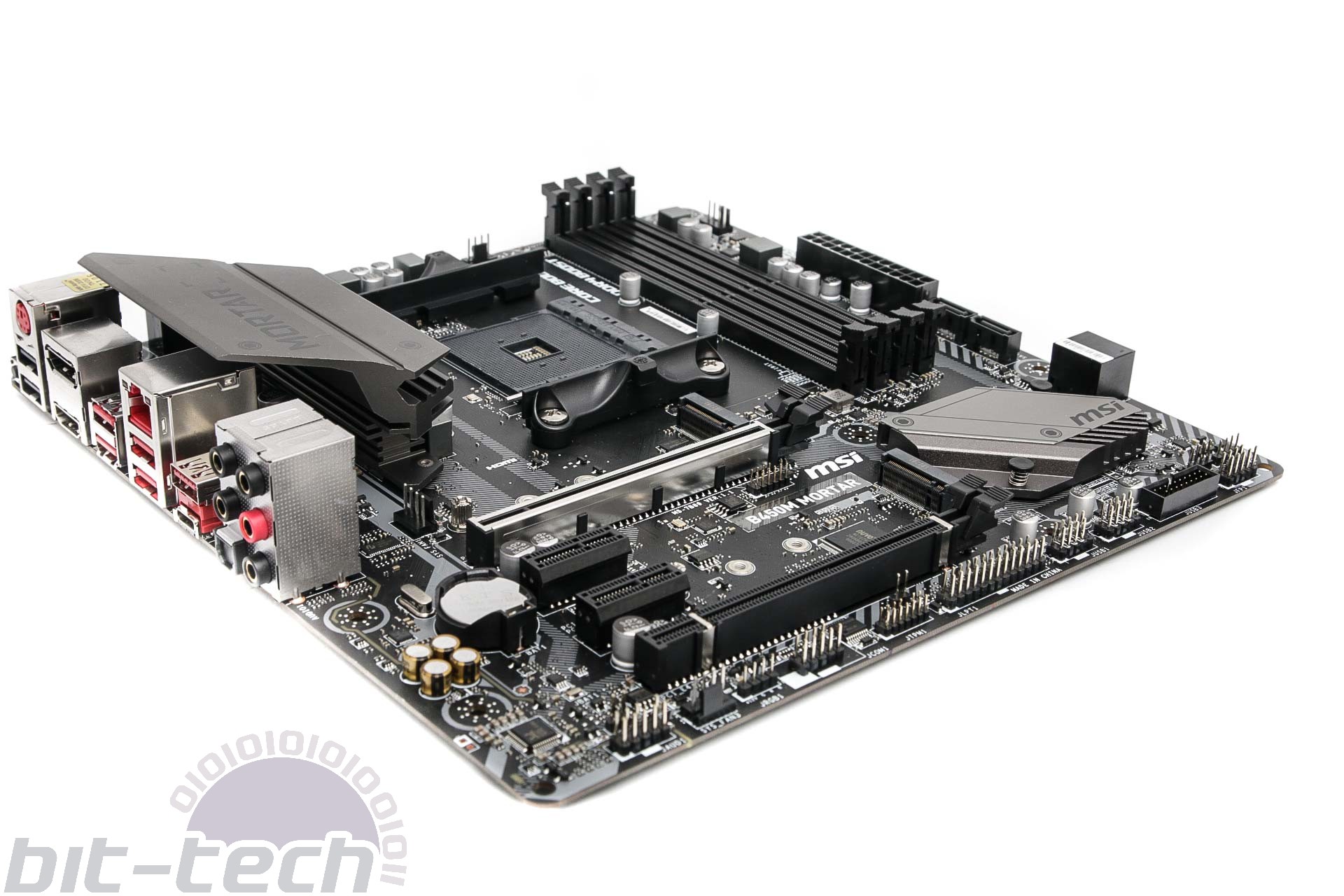
Elsewhere there was very little to distinguish it from the more expensive boards on test - raw performance numbers were within a couple of percent across the results, and despite not having M.2 heatsinks, it still managed a read speed of 3,391MB/s, although as we've seen occasionally on boards with no M.2 heatsinks, the read speed was about 100MB/s south of the rest of the field - not that you'd notice, of course.
Conclusion
Despite the board appearing to be less capable in terms of overclocking, the B450M Mortar actually handled our eight-core Ryzen CPU much more confidently than Gigabyte's B450 Aorus Pro, showing no signs of throttling during our 10-minute stress test and the VRMs themselves staying within acceptable limits. We're not saying that it would survive a monster overclock in a warm room dealing with a three-hour rendering task stressing all cores and threads, but for reasonably demanding multi-threaded workloads taking 10-15 minutes to complete, it seemed happy to chug along without issue, and that's on our test bench with minimal airflow too.
Elsewhere, the Gigabyte board certainly offers more - it's better looking, has more by way of RGB lighting, M.2 heatsinks, a better audio codec and the like, but if we were planning on overclocking our Ryzen CPU and wanted a budget board that punches above its weight, the B450M Mortar certainly seems better able to cope. So, despite its somewhat average feature set in some areas, it's definitely the board we'd choose if we were building a budget-conscious overclocked Ryzen system, and MSI has proved that B450 motherboards and overclocking do mix. As a bonus, it also offers the same board with the beautiful MSI Titanium aesthetics, although that'll set you back £15 more.


MSI MPG Velox 100R Chassis Review
October 14 2021 | 15:04

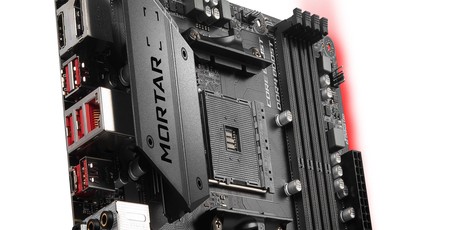
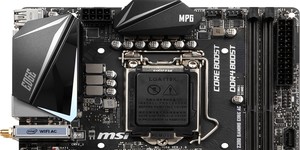
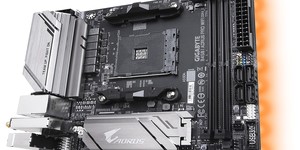
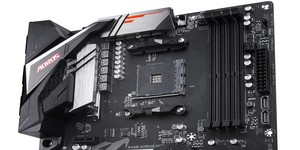




Want to comment? Please log in.